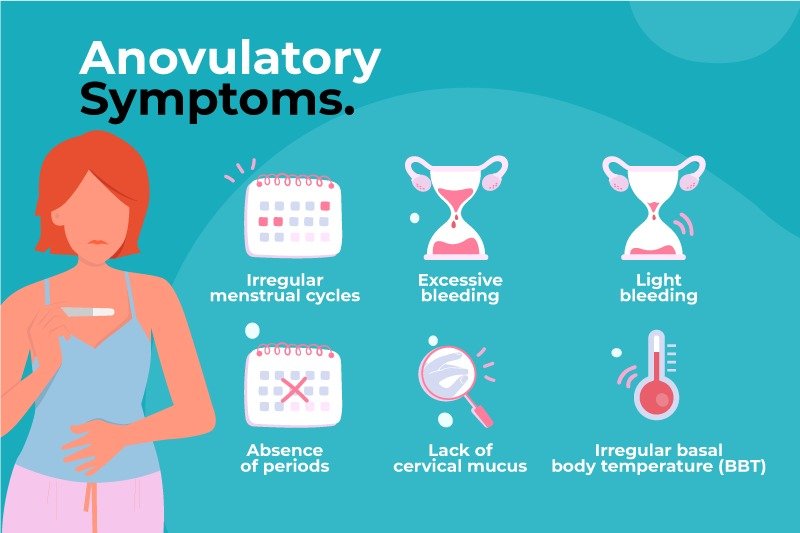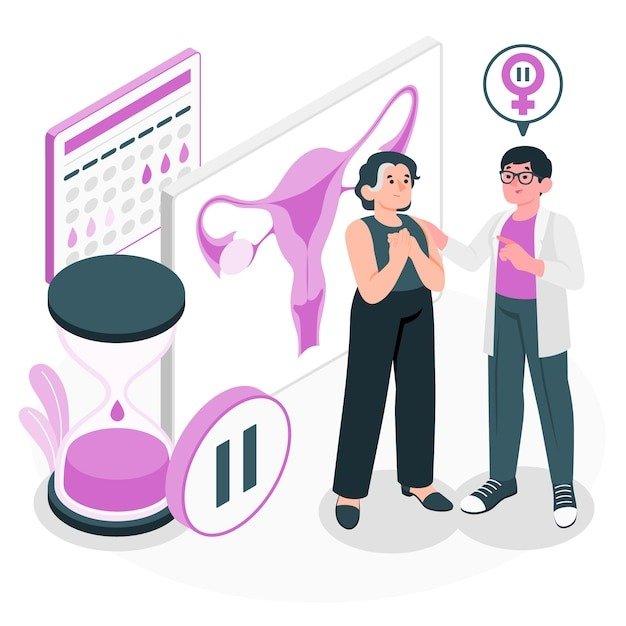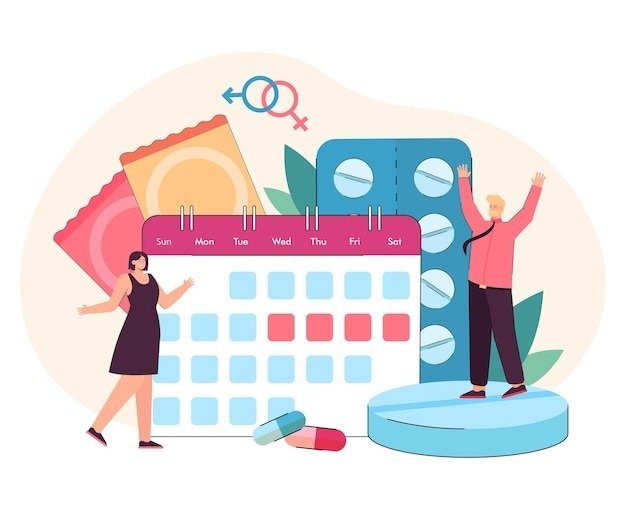Anovulatory and infertility have a strong connection. It is a condition where a woman's ovaries fail to release an egg during the menstrual cycle. Even if all other aspects of the reproductive system are working properly, the lack of ovulation prevents natural conception from taking place.

Is anovulatory infertility more common than you think? Let's unveil the statistics.
Is anovulatory infertility a common condition?
Yes, anovulatory infertility is a relatively common condition among women. Studies suggest that infertility associated with anovulation makes up 25% of female infertility cases. Many factors contribute to anovulation and infertility. But, there are many effective ways of diagnosing and treating anovulatory infertility.
Unlock the mysteries behind anovulatory infertility and uncover its hidden causes.
Take charge of your health with the best treatment. Book your consultation now.
What causes anovulatory infertility?
Anovulation means the eggs are not released properly from the ovaries. There can be many reasons behind this. The reasons can be:
- High Androgen Hormones: Like testosterone, can prevent the growth of follicles in the ovaries. This leads to anovulation. PCOS and obesity are some prime causes of this.
- Pituitary Gland Problems: It causes anovulation. The hormones released by pituitary glands help in ovulation. If the pituitary gland doesn’t release enough hormones, anovulation occurs. This can happen with very low body weight, intense exercise, or certain medical conditions.
- High Prolactin Levels: It can stop the hormones needed for ovulation. High prolactin levels are often caused by breastfeeding or certain medical conditions. This leads to anovulation.
- Low Thyroid Hormones increase prolactin levels and disrupt ovulation.
- Low Gonadotropin-Releasing Hormone: GnRH can also cause anovulation. It triggers the release of hormones needed for ovulation. Hence, leading to anovulation.
- Premature Ovarian Insufficiency (POI): This happens when a woman's ovaries stop working before she's 40. This is like early menopause. Sometimes it's due to medical reasons or exposures. But most of the time the reason is unknown. About 5% to 10% of women with POI can still get pregnant naturally and have a regular pregnancy.
- Diminished Ovarian Reserve (DOR): Every woman is born with a set number of eggs. With time, this number naturally decreases. Women with DOR have fewer eggs left than usual. This can be due to various reasons, like medical issues or just happening without explanation. They might have fewer eggs for fertility treatments but could still get pregnant naturally.
Your body's whispers: Detecting anovulatory infertility through its subtle symptoms.
What are the symptoms of Anovulatory infertility?

Being aware of signs of anovulation is important. You should know that having a period might not necessarily mean that you have ovulated! Here are the symptoms that you should watch for:
- Irregular Periods can be a sign of anovulation. If your length of period cycle keeps on changing every month then it can be a sign.
- Very heavy or very light periods can be another sign to look out for.
- If you skip more than one period without being pregnant. It can be because of anovulation.
- Usually there is a lot of vaginal discharge before periods. So, lack of cervical or vaginal discharge before periods can be another sign of anovulation.
- Your basal body temperature is your body's resting temperature. It can go up a bit during ovulation. Tracking this temperature in the morning before any activity can give clues about ovulation.
The path to answers begins with diagnosis. What tests reveal the truth about anovulatory infertility?
Your well-being is our priority - call us to book your appointment today.
How is anovulatory infertility diagnosed?
If you have irregular periods, it could be a sign of anovulation. But in case you want to have a baby you must find out the cause of anovulation. There are different ways to find out anovulatory infertility causes.
To find out the causes, doctors ask for a few tests to be performed:
- Checking your progesterone levels in your blood.
- Testing your thyroid hormone levels in your blood.
- Checking your prolactin levels in your blood.
- Doing an ultrasound to look at your pelvic organs.
Ready to take control? Explore the treatments that can reignite your fertility flame.
Can anovulatory infertility be treated?

Yes, anovulatory infertility can certainly be treated. Anovulatory infertility treatment mostly focuses on fixing the hormonal imbalances in the body. If there is the right balance of hormones, ovulation will occur regularly and on time. Thus, decreasing the chances of female infertility associated with anovulation.
The following things can help:
- Find ways of managing stress. If stress is causing anovulation, techniques like meditation, yoga, or deep breathing may help.
- If you're overweight, losing weight might help. On the other hand, if you're underweight, gaining weight may be advised.
- Reducing the frequency and intensity of your workouts if they're causing anovulation.
Besides these, there are other treatment options that may help in treating anovulatory infertility.
- Medications for underlying conditions like hypothyroidism are also used for anovulatory infertility treatment.
- If you are taking any medication and they are causing anovulation. Then you should ask your doctor to revise them if possible.
- Doctors may advise you on fertility medications that stimulate ovulation to treat anovulatory infertility.
- Clomiphene Citrate: Corrects ovulatory problems.
- Human Chorionic Gonadotropin (hCG) Injection: Helps release eggs.
- Follicle-stimulating hormone (FSH) Injection: Used if other treatments don't work.
- Gonadotropin-releasing hormone (GnRH) Injections: Controls hormone levels needed for ovulation.
If you are trying to conceive and these methods don't work out. Then there are other ways as well. There are options like IVF and intrauterine insemination that help in anovulatory infertility treatment.
What lies ahead? Uncover the potential complications of anovulatory infertility.
Take the first step to recovery. Get in touch with us for your treatment.
Are there any complications associated with anovulatory infertility?
There are various risk factors in infertility associated with anovulation:
- PCOS anovulation: It is a common condition that causes 70% of anovulation cases. PCOS increases the amount of androgens in the body. This prevents the follicles from growing and releasing eggs.
- Endometrial Hyperplasia: Anovulation can lead to irregular periods. This causes the uterine lining to become too thick. This leads to abnormal cell growth in the uterus. As a result, it increases the risk of endometrial cancer.
- Insulin Resistance or Type 2 Diabetes. PCOS anovulation can make your body less responsive to insulin. Insulin controls blood sugar. This leads to type 2 diabetes over time.
- Cardiovascular Disease: PCOS anovulation can also cause cardiovascular diseases. PCOS is connected to issues like obesity, high blood pressure, and abnormal cholesterol levels. Thus causes harm to the heart and blood vessels.
Empower yourself with strategies to prevent and manage anovulatory infertility.
Can anovulatory infertility be prevented?

Anovulatory infertility can sometimes be prevented or managed by:
- Maintaining a Healthy Weight: Achieving and maintaining a healthy body weight can help regulate ovulation.
- Managing Stress: Stress reduction techniques can improve hormonal balance.
- Early Detection and Treatment: Identifying and addressing conditions like PCOS and thyroid disorders early can prevent anovulation.
- Lifestyle Choices: Limiting excessive exercise and avoiding extreme diets can promote regular ovulation.
- Regular Check-Ups: Routine gynecological check-ups can catch ovulatory issues early for prompt intervention.
Your health is too important to ignore – schedule your appointment now.






